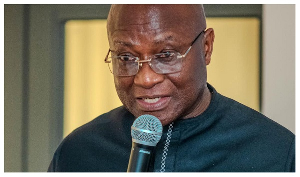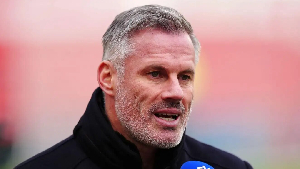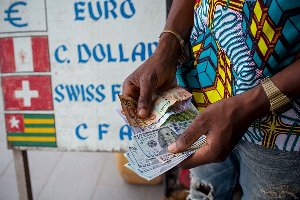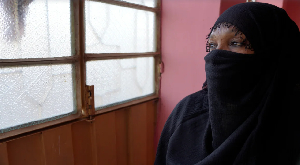To run or not to run?
This is a question most MPs are currently doodling over both on the Minority and Majority Benches in Parliament. With the conclusion of the congresses to elect Presidential candidates of the two major parties, attention is shifting to candidacy at the constituency level. We are currently in the Third Parliament since the people of Ghana adopted the 1992 constitution at a referendum, which launched the Fourth Republic.
A small number of MPs are in their third term in Parliament. All of these are members of the NDC. As a result of the boycott of the Parliamentary elections of 1992 by the NPP, PHP, PNC and other parties, the First Parliament was made up of only the NDC, NCP and Egle parties which incidentally all belonged to the Progressive Alliance. These MPs like Kosi Kedem, Nobert Awulley, Doe Adjahoe, Alban Bagbin, Sallas Mensah, Asiedu Nketiah, Kofi Attor and many others are extremely experienced parliamentarians and very well versed in the rules and standing orders of the house.
The vast majority of MPs on both the majority and minority benches are into their second term in Parliament. These are also very capable and experienced people such as Akuffo Addo, Addo Kufour, Hackman Owusu Agyemang, Apraku, Osafo Marfo, Balado Manu etc all on the Majority bench and Moses Asaga, Kofi Asante, Cletus Avoka, Muhammad Mummuni, Benyiwa Doe, Ofosu Ampofo, Modestus Ahiable etc on the Minority side.
The greater number of first term MPs are on the NPP side, with a sprinkling of them on the NDC bench. Even then, members like P.C. Appiah Ofori, George Amoo, Nibi Ayibonte, Hannah Tetteh, Dr. Mustapha Ahmed, Issah Abah and many others have already made their mark in the house.
A few MPs have gone ahead and declared their intention to seek re-election at the 2004 election. Early declaration might be necessary due to the slippery nature of the political terrain in a particular constituency. Among early declarers has been Minority Leader Alban Bagbin. Bagbin has really blossomed in his third term in Parliament. He has always been admired for his sharp legal brain and has always been the main legal sharpshooter on the NDC bench in all his 10 years in Parliament. With his appointment as Minority Leader however, his true qualities have emerged and been recognized by the nation. Completely unfazed by any intimidation or blackmail from the Government side, he has led the majority charges at Government on all controversial issues.
Bagbin?s performance as Minority Leader has led to an oft asked question ?where has he been all this while when the NDC was in office.? Indeed it is a surprise to most people that he is in his third term in Parliament and was previously unheard of. Apart from a stint on the GAPOHA board and involvement in the Private Sector Participation in Water for which attempts have been made to mudsling him, Bagbin remained largely unrecognized and anonymous on the national stage in his first two terms in Parliament.
His declaration of intention to stand for re-election elicited a robust riposte from his Constituency Chairman who is reported to be interested in replacing him as the Member of Parliament. Quite strong words like ?the seat does not belong to his family? show the strength of feeling on this issue. In many parts of the world experience counts for much in re-election of MPs, but certainly not in these parts. There is a certain perception in Ghana that Parliament is a game of musical chairs, where each person has his turn for one or two terms and moves on.
The role of the Parliamentarian has changed significantly since the early post election era. In the early period when we had a very centralized form of government, an MP was elected by his people to go to Accra and attract as much development from the central budget as possible to his area. Even very insignificant projects like school furniture and public toilets had to be planned and provided for at the central government level. Members of Parliament were therefore an instrument for development and their success as MPs depended mainly on how much development they were able to attract to their constituencies during their tenure. With the District Assembly concept and the decentralization process implemented by the PNDC regime, there has been a significant shift both in the centre of power and development.
Provision in the 1992 constitution for the creation of a District Assembly?s? Common Fund into which between 5-8% of government revenue is paid for development projects at the district level has shifted the focus of development to the districts. District Assembly?s are able to draw up their own budgets and decide to what use to put their share of the common fund. Currently it is only major development projects such as trunk roads, major bridges, landfills, water treatment plants, electrification and other major infrastructure projects that are funded by central government. The role of the MP will therefore appear to have shifted to how effectively he represents his people and articulates their views on a national platform. He is also required to keep a constant touch with his people in order to be acquainted with their concerns.
In the present brouhaha and jostling over the Salaga seat, one of the major points of disagreement has been about who has done what for the people. While one group claimed that development projects currently going on in Salaga are the result of the effort of the DCE, another group has claimed that these projects are at the initiative of the Independent MP for Salaga and current Deputy Minister for Trade and Industry. Despite the reconfiguration in the development process, the Salaga case shows clearly that at the constituency level, re-election is still about what development projects an MP can attract back home. An MP can talk all he wants and do as much advocacy as he possibly can for his constituents; in the long run it is the KVIP which was not built in a particular community that determines his fate in any re-election bid.
Running battles between DCEs and MPs are not uncommon. DCEs are advantageously placed. They preside over the assemblies and control a budget of nearly ?3 billion a year. By carefully targeting development projects they could easily undermine the incumbent MP and supplant him at the next election. Never mind that they may end up as bench warmers or even be as dumb as a door nail in Parliament. The MPs share of the common fund amounts to a comparatively measly ?88 million per year.
But of course that is what democracy is all about; the right to choose. If the people want to be represented by a door nail, it is their constitutional right to do so. The NDC after the loss of several seats in the last election following the imposition of some unpopular candidates on those constituencies, has decided to hold primaries in every constituency for the selection of Parliamentary candidates. Ultimately the question as to who runs or does not run will be settled at the primaries by the party faithfuls at the constituency level.
I was shocked at the news of the death of friend and colleague John Achuliwor, Deputy Minister of Communications and Technology and MP for Navrongo Central. John had been involved in an accident near Ejisu and had been airlifted back to Accra. I had enquired about him over the weekend and was told he was in a critical state, but could pull through if he hanged on past the weekend. Despite this bleak prognosis, news of his death on Wednesday came as a shock to me. John has always been a very forthright, frank and slightly reckless person. Largely undiplomatic, he was very jovial and always had a quip on his lips when you run into him. He could however swing from jovial conviviality to surprising aggression if you breached any principles he held sacred.
Originally of CPP stock, he eventually as a result of the exigencies of political power play in the Navrongo area ended up in the NPP. John Achuliwor was not the type to throw his hands up in the air if he was confronted with a problem. Concerned about his marginalization after his appointment as Deputy Minister of Communications, he is reported to have hauled his boss before the ?oldman? himself. Some words of advice and admonition caused a change in attitude and allowed him more access in the work of the ministry. The last time I met him was at Parliament House sometime in mid December last year. Frustrated at the lack of information on the Telenor agreement I took a shot at him, ?I am sure even you have not seen the Telenor agreement.? ?I have seen it? he quickly shot back. We then proceeded to discuss problems confronting the telecom sector.
Too many people have died from the recklessness of drivers who abandon broken down vehicles carelessly in the road. Remember the 25 poor souls who died on a bus from Bawku when they run into a stationary timber truck? Remember Obiri of VAG West fame, Remember Bonful the former deputy minister of Interior and many, many others.
I am told John had contemplated postponing his trip to the north for the following weekend. Unfortunately he decided to go on the trip after spending the whole day in the office. His driver was also said to have been at the Ministry the whole day. Obviously tired, they took off at night on the more than 10 hour trip to Navrongo.
We have all undertaken the same risk but have probably just been lucky. It could have been any of us. Driving at night is simply too dangerous in this part of our world. Being a veteran of night travel myself I have encountered too many near misses for comfort. In 1998, driving back to Accra from a VAT road show in Sunyani at about 11 at night, I was run off the road by a petrol tanker that surprisingly cut into my path near Potroase. I was saved by the Anti lock braking (ABS) system of the VW Passat I was driving. It allowed me to retain control of the vehicle while I steered at more than 100kph through the bushes at the edge of the road. The tanker driver just drove on without a care about what happened.
John?s unfortunate death lumbers the parties with another bye-election at a most unfortuitous time. With the ruling party struggling to explain the killer adjustment in petroleum prices and the NDC finalizing the process of patching up differences after the bruising electoral battle between Botchwey and Mills, a bye election in Navrongo was the farthest thing on the minds of officials of both parties. However life carries on and the question ?to run or not to run? is one that will continue to occupy the thoughts of many MPs over the next several months.



















